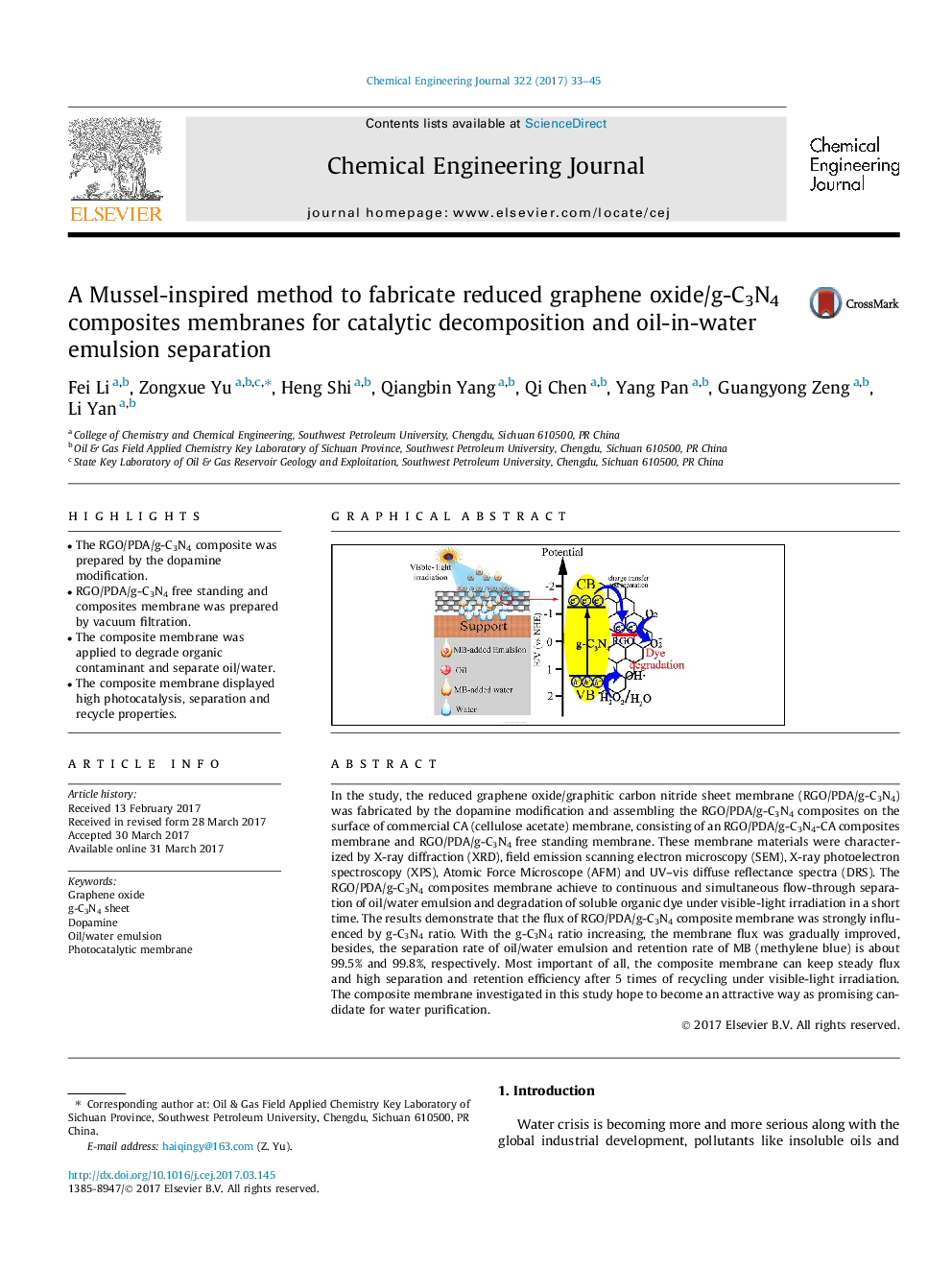| Article ID | Journal | Published Year | Pages | File Type |
|---|---|---|---|---|
| 6465621 | Chemical Engineering Journal | 2017 | 13 Pages |
â¢The RGO/PDA/g-C3N4 composite was prepared by the dopamine modification.â¢RGO/PDA/g-C3N4 free standing and composites membrane was prepared by vacuum filtration.â¢The composite membrane was applied to degrade organic contaminant and separate oil/water.â¢The composite membrane displayed high photocatalysis, separation and recycle properties.
In the study, the reduced graphene oxide/graphitic carbon nitride sheet membrane (RGO/PDA/g-C3N4) was fabricated by the dopamine modification and assembling the RGO/PDA/g-C3N4 composites on the surface of commercial CA (cellulose acetate) membrane, consisting of an RGO/PDA/g-C3N4-CA composites membrane and RGO/PDA/g-C3N4 free standing membrane. These membrane materials were characterized by X-ray diffraction (XRD), field emission scanning electron microscopy (SEM), X-ray photoelectron spectroscopy (XPS), Atomic Force Microscope (AFM) and UV-vis diffuse reflectance spectra (DRS). The RGO/PDA/g-C3N4 composites membrane achieve to continuous and simultaneous flow-through separation of oil/water emulsion and degradation of soluble organic dye under visible-light irradiation in a short time. The results demonstrate that the flux of RGO/PDA/g-C3N4 composite membrane was strongly influenced by g-C3N4 ratio. With the g-C3N4 ratio increasing, the membrane flux was gradually improved, besides, the separation rate of oil/water emulsion and retention rate of MB (methylene blue) is about 99.5% and 99.8%, respectively. Most important of all, the composite membrane can keep steady flux and high separation and retention efficiency after 5 times of recycling under visible-light irradiation. The composite membrane investigated in this study hope to become an attractive way as promising candidate for water purification.
Graphical abstractDownload high-res image (94KB)Download full-size image
